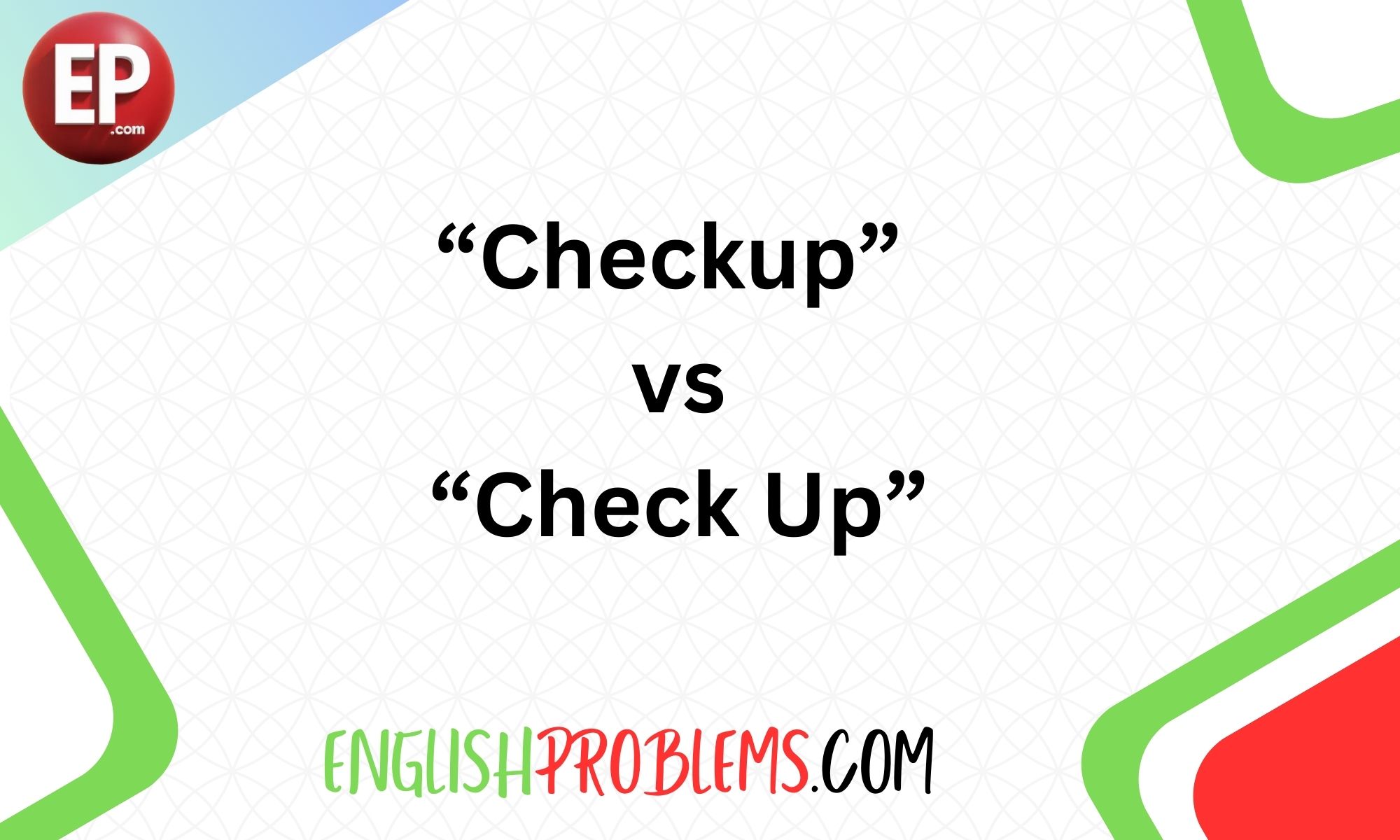Understanding the distinction between “checkup” and “check up” can seem trivial, but using these terms correctly is crucial for clear and effective communication. Both terms sound similar but serve different functions in the English language.
This article will clarify their meanings, uses, and provide practical tips for avoiding common mistakes.
Definitions and Usage
Checkup
Checkup is a noun referring to a routine examination or assessment, usually in a medical context. It denotes a scheduled appointment where a professional examines a person’s health to ensure everything is functioning correctly.
Examples:
- “I have a checkup with my doctor next week.”
- “Regular checkups are vital for maintaining good health.”
A checkup can be related to various fields beyond medicine, such as vehicle maintenance or even routine evaluations of other systems. However, in everyday conversation, it most commonly refers to health-related appointments.
Check Up
Check up is a phrasal verb that means to investigate, verify, or assess something. It involves taking action to gather information or ensure that something is proceeding as expected.
Examples:
- “I need to check up on the status of my application.”
- “Can you check up on the project’s progress?”
When using check up, the focus is on the act of examining or verifying, rather than the appointment or assessment itself.
Contextual Differences
Medical Context
In medical contexts, checkup is used to describe a planned, often routine examination by a healthcare professional. It could be a physical exam, a dental checkup, or any other routine health screening.
Examples in Medical Context:
- “Annual checkups help detect health issues early.”
- “My dentist recommended a thorough checkup every six months.”
Table: Examples of Medical Checkups
Type of CheckupDescriptionFrequencyPhysical ExamComprehensive health evaluationAnnuallyDental CheckupOral health inspectionEvery 6-12 monthsEye ExamVision and eye health assessmentEvery 1-2 years
General Context
In everyday use, check up can refer to verifying the status of tasks, people, or projects. It’s a more dynamic and action-oriented term compared to the noun checkup.
Examples in General Context:
- “I’ll check up on the task list later.”
- “She promised to check up on how I was doing.”
Case Study: Workplace Usage of “Check Up”
A project manager might say, “I need to check up on the team’s progress to ensure we meet the deadline.” Here, the emphasis is on actively monitoring and verifying the current status of the project.
Grammatical Considerations
Part of Speech
Understanding the grammatical roles of checkup and check up can help avoid confusion:
- Checkup is a noun. It refers to a specific event or examination.
- Example: “Her checkup went well.”
- Check up is a phrasal verb. It describes the action of investigating or assessing.
- Example: “I will check up on that.”
Sentence Structure Comparison
- Noun Usage: “His annual checkup is scheduled for next Monday.”
- Phrasal Verb Usage: “I need to check up on the shipment’s arrival time.”
Table: Part of Speech Comparison
TermPart of SpeechExample SentenceCheckupNoun”She has a routine checkup scheduled.”Check UpVerb”I will check up on the report later.”
Common Mistakes
Frequent Errors
Many people confuse checkup and check up, leading to incorrect usage in both writing and speech.
Examples of Mistakes:
- Incorrect: “I have to check up with the doctor next month.”
- Correct: “I have a checkup with the doctor next month.”
Tips to Avoid Mistakes:
- Identify the Context: If you’re talking about an appointment or routine examination, use checkup. If you’re discussing the act of verifying something, use check up.
- Read Carefully: Proofread to ensure you’re using the correct term based on the context.
Practical Tips for Correct Usage
When to Use “Checkup”
Checkup should be used in contexts where a formal or routine examination is taking place. This is typically associated with health, but it can apply to other evaluations as well.
Examples:
- “Regular checkups help prevent serious health issues.”
- “He scheduled a checkup for his car.”
When to Use “Check Up”
Check up is appropriate when referring to the action of verifying, investigating, or assessing the status of something.
Examples:
- “I will check up on the progress of our application.”
- “She needs to check up on her email for updates.”
Memory Aids
To remember the difference:
- Checkup: Think of it as a noun for an examination (a “check-up” as a formal event).
- Check up: Consider it as an action (checking up on something actively).
Conclusion
In summary, checkup and check up might sound similar but serve distinct purposes in English. Understanding their differences helps in accurate communication. Checkup refers to a routine examination, mainly in medical contexts, while check up involves the action of investigating or verifying.
FAQs
- 1. Can I use “checkup” in non-medical contexts? Yes, while checkup is most commonly used for medical appointments, it can also refer to other types of routine assessments.
- 2. Is “check up” ever used as a noun? No, “check up” is always a verb phrase. Use checkup when referring to a noun.
- 3. How can I avoid confusing these terms in writing? Focus on whether you’re describing an event or an action. If it’s an event, use checkup; if it’s an action, use check up.
By keeping these distinctions in mind, you can ensure that your communication is both clear and effective.

Freya Hughes is a dedicated language enthusiast who turns grammar lessons into enjoyable learning experiences. Her approachable and friendly manner ensures that even the most daunting grammar rules become accessible to all.










